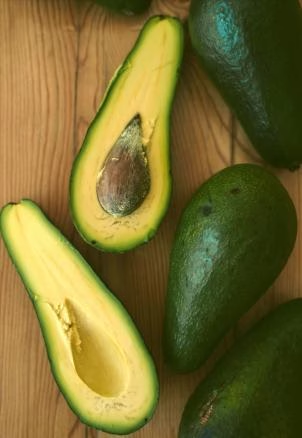How to preserve an avocado half?
Avocados are a healthy source of fat and rich in polyphenol oxidase. However, we often can’t finish an entire avocado in one sitting. Even when refrigerated, cut avocados easily turn brown.
This is because polyphenol oxidase causes food to turn brown when exposed to oxygen. This is why apples and bananas change color after being cut.
How to preserve an avocado half? Are there any tips for preserving other fruits and vegetables?
How to preserve an avocado half to prevent it from turning brown?
Use citrus juice
The ascorbic acid in citrus fruits (such as lemons and oranges) helps slow the “browning” process caused by oxidation. For example, adding a few drops of lemon juice to the flesh of bananas, apples, and avocados can prevent the fruit from turning brown for several hours after being cut.
Don’t forget, even after applying the lemon juice, the avocado still needs to be sealed and refrigerated!
Apply olive oil
If you’re going to eat the cut avocado the next day, you can apply a little olive oil to the flesh. This will prevent the avocado flesh from coming into contact with air and prematurely browning. Remember to store it in an airtight container and refrigerate.
Place with Onions
Chop a quarter or half of an onion into pieces and place them in the bottom of an airtight container. Place the cut avocado flesh-side up on top of the onion and seal. The gases released by the onion will help prevent the avocado from discoloring.
After making the avocado sauce, add a layer of water to seal it.
After making the avocado sauce (pure avocado, without any other ingredients), the shelf life is generally shorter. However, if you pour the avocado sauce into a sealable container, gently flatten the surface with a spoon to squeeze out any air.
Finally, add a thin layer of boiling water, seal the container, and refrigerate. This will keep it fresh for about three days and slow down discoloration. The water helps prevent oxygen from coming into contact with the avocado flesh, while the avocado oil prevents water from seeping into the avocado. Pour off the water and stir well before serving for a delicious, fresh-made avocado.
Fruit Preserve: Other Tips
- Wrap leafy greens in newspaper or paper towels and store them in airtight bags (or airtight containers) to reduce the formation of unnecessary moisture and help prevent them from rotting or drying out.
- Store vegetables and fruits separately, as they produce different gases that may interact and accelerate spoilage. A refrigerator should never be more than 70% full; overfilling will affect the internal refrigeration.
- To keep bananas fresh, wrap the stems (tops) in plastic wrap to slow their ripening.
- Citrus fruits should be stored at room temperature, as the refrigerator’s cold air will actually drain them of moisture.
- To extend the shelf life of berries (such as blueberries, strawberries, and blackberries), rinse them with white vinegar (a mixture of 1:8 vinegar to water). Rinse with water, dry the fruit, and store in a container.
How long can opened food stay fresh in the refrigerator?
Refrigerator: Keep the temperature below 7°C. Generally, food can be kept refrigerated for 3-5 days, depending on the condition of the food. Fresh food should be consumed as soon as possible to prevent it from spoiling.
Freezer: Keep the temperature between -18°C and -20°C.
Food Shelf Life (Refrigerated at 5°C) (Storage conditions below)
Apples: 3-4 weeks
Blueberries: 1-2 weeks
Avocados: 2-3 days (To prevent oxidation, squeeze a few drops of lemon juice onto the avocado flesh, retain the core, and wrap in plastic wrap or aluminum foil.)
Cauliflower: 3-5 days
Carrots: 2-3 weeks
Celery: 1-2 weeks
Grapes: 5-7 days, wash before eating
Orange juice: 7-10 days
Strawberries: 2-3 days
Peaches: 3-5 days (based on ripeness and edible state)
Eggs: 2-3 weeks
Cheese: 7-10 days
Beef brains: 5-7 days
Beer: 1 day (if you are about to drink (Leftover beer, sealed in good condition)
Champagne: 3-5 days (Champagne may not have bubbles, but it is still safe to drink)
Red/white wine: 3-5 days (Remove red wine from the refrigerator an hour before serving and let it warm to room temperature)
Bacon: 1 week
Beef, lamb, pork: 3-5 days
Spam and ham: 3-5 days
Poultry (cooked): 3-4 days
Poultry (raw): 1-2 days
Salmon, tuna, shrimp (cooked): 3-4 days
Salmon, tuna, shrimp (raw): 1-2 days
BBQ sauce: 3 months
Ketchup: 6 months
Mayonnaise: 2-3 months
Mustard: 1 year


Leave a Reply